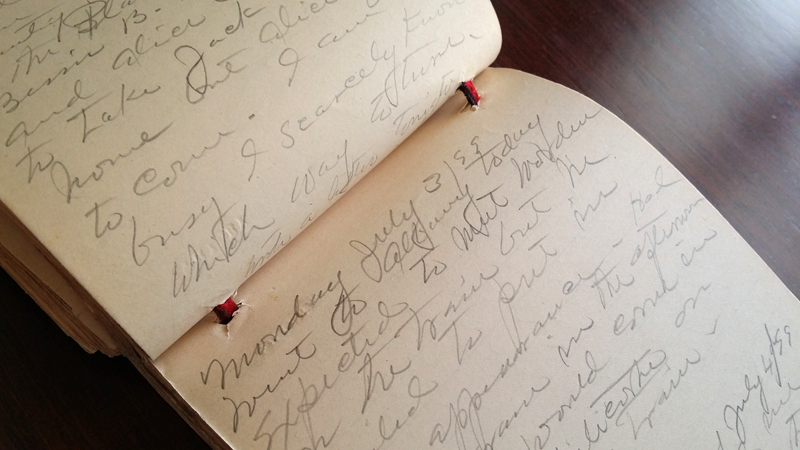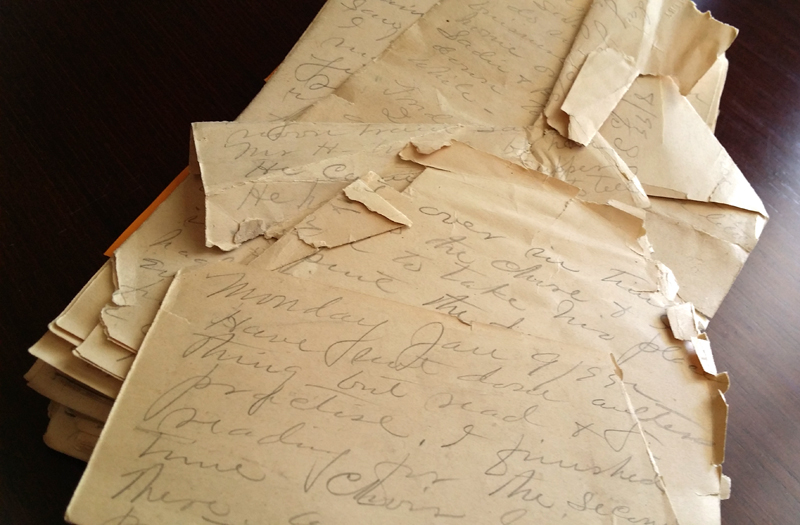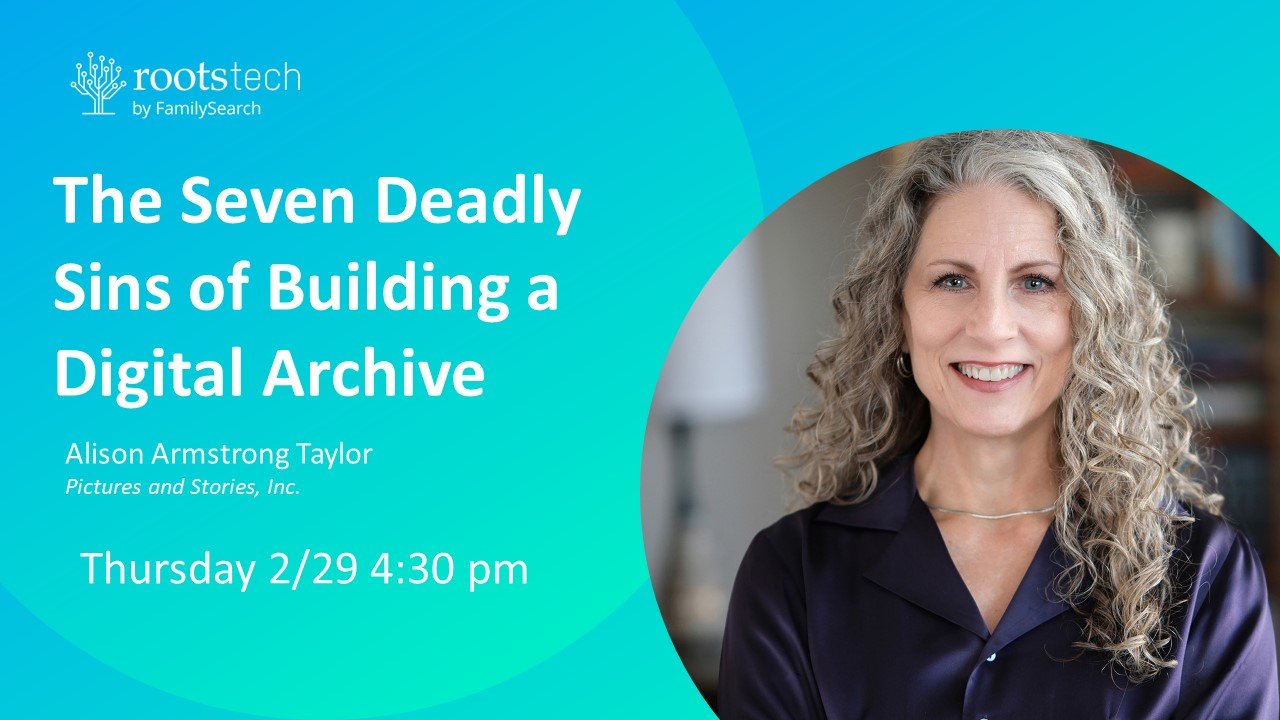Years ago, while sifting through a musty dusty trunk of photos and ephemera that came from my great-grandfather's estate, I came across a torn diary without a cover. I couldn't wait to discover what gems would leap from the yellowed pages to inspire and instruct me, what wealth of genealogical information it would hold. If I only I knew who wrote it....
In reality the diary somewhat disappointed my exalted expectations. It covered the year 1899, beginning in January and ending in December, and, as I soon extrapolated, was written by a third-great-aunt, who I'll call Addie. She was 47 years old at the time and lived in a small village in Ohio. She was not a happy woman, at least not in 1899.
Although this snippet of her diary was sometimes sad and often boring, I still learned a great deal from reading it. I can't judge her life or her reasons for writing a diary. But I can take away some insights that I can use in my own life writing.
1. Use archival paper--or not. As I write my life stories, I want them to be beautifully presented in a permanent and archival-quality book. But my journal? Maybe not. Years ago, I used to buy beautiful hard-bound journals with creamy paper, and then never wrote in them. They were too perfect, too intimidating. So I switched to writing in composition notebooks. The very cheapness of the paper is inviting, whispering to me that what I say doesn't have to be perfect, or even nice. Just spill it all out onto those college-ruled lines. When I write my stories, I can distill that composition journal vomit into something more palatable and meaningful to others who might be interested. In the meantime, it's just for me. (And I've left instructions for them to be burned, unread, should I meet an untimely death.) Addie, I'm sure, did not intend her diary to be read by anyone, never mind over 100 years later by a snoopy third-great-grand-niece.
If you want your journal to be preserved for posterity as is, then by all means use quality materials and archival storage to make sure your words don't become some critter's lunch.
Meal for a mouse?
2. Date every entry. One thing that's really great about this diary is that every entry is dated, including the year. This was very helpful for me to extrapolate genealogical data. Phrases such as "It has been four years today since my father died" gave me a solid death date for her father.
3. Write in pencil? I was horrified by this idea when I first came across the diary. Then I realized how smart it really is. Graphite doesn't fade, doesn't bleed through the paper, and doesn't smear when it gets wet. My fancy gel pen handwriting from a few years ago is already starting to show problems, so I may just switch to pencil.
The pencil held up much better than the paper.
4. Complaining is...well, boring, unless it's specific. Again, I'm not judging Addie for complaining in her diary, because heaven knows I've done enough of it in mine. I just wish she had put in more details so I could understand why she was so sad. (But I know she didn't write it for me.) She alternates between weather, accounts of errands, and phrases such as "I was disappointed again tonight. I ought to become used to it but it seems I never will." Disappointed about what? I was able to vaguely determine from some clues along the way that her husband was a drinker, and she also was possibly in unrequited love with another man who visited from time to time, whom she called "her best friend in the world." As far as I know she never had any children, but never mentions this in her diary. I wish I knew what had broken her heart.
About halfway through the year, one clue stands out. "Twenty five years ago tonight I was married. How well I remember that night. What a turmoil we were in. It was a typical day of what my life has been since. Tonight has been a very sad night."
Did her heart ever mend? She lived for another 36 years, after all. In my heart of hearts I hope that the diary documents the saddest year of her life. I hope that she went on, as I did, to find true love later in life. I hope she enjoyed love and peace in her declining years. But I guess I'll have to keep looking to find the rest of Addie's story.
Papers tied with ribbon, and an inexplicable "Trilby" stamped in the upper left corner of each page.






